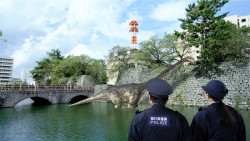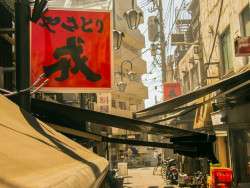
September 20, 2022
COVID-19 in Japan: Important Updates and Resources
What you need to know about the coronavirus in Japan
By Metropolis
Latest Updates
October 11 – As of Tuesday October 11, Japan has officially reopened to international tourism with most of the measures put in place over the course of the pandemic now lifted. Visa, quarantine and pre-arrival PCR test requirements for short-term travellers have all been scrapped, along with daily entry caps and the need to book travel through an approved agency. With these requirements lifted, travel to Japan is now largely the same as it was pre-pandemic with proof of triple vaccination being the only major requirement for those wishing to forgo pre-arrival PCR tests. Non-vaccinated travellers will need to submit proof of negative test 72 hours before departure to Japan. Head to the Ministry of Foreign Affairs for more details.
September 15 – The Japanese Government plans to remove many of the current COVID-19 travel restrictions “in the not-so-distant future,” according to a recent Japan Times article. Deputy Chief Cabinet Secretary Seiji Kihara said current restrictions including strict visa requirements, the need to book travel through an approved agency and daily caps on entrants will be removed simultaneously, stating that Autumn and winter are an important time for tourism in Japan and that tourists will want to capitalize on the currently weak Japanese yen.
August 24 – According to an NHK report, the Japanese Government is planning to ease border control measures for foreign tourists from early September. The report states that negative PCR test results may no longer be required for fully-vaccinated travelers and also states that the daily limit for foreign visitors may be raised to 50,000 from the current 20,000. While the new rules to be introduced in September allow tourists to travel freely as opposed to with a tour group, the report states that their visit will need to be arranged through a travel agency, with agencies expected to manage their clients’ schedules.
JUNE 2 – On June 1st, Prime Minister Kishida announced a cautious relaxing of travel restrictions to Japan. Starting June 10, foreign tourists will be allowed to enter the country for the first time since strict border control was imposed two years ago. For now, the entry of tourists is limited to those who are visiting with a package tour through valid travel agencies. Japan has also increased the daily cap of foreign entry from 10,000 to 20,000 people. According to the Ministry of Foreign Affairs, countries have been categorized into “Blue,” “Yellow,” and “Red” countries, in which visitors from “Blue” countries (including China, Taiwan, and South Korea), and triple-vaccinated visitors from “Yellow” countries (including India and Vietnam) are not required to take an on-arrival Covid test. All entrants must still test negative 72 hours before their time of departure.
MAY 13 – Prime Minister Kishida has announced that Japan will bring its border policies in line with the rest of the G7 by June. Reports allude that Japan will begin permitting small package tours as early as May, with borders likely to reopen in June — but with a daily entry cap at 20,000 for overseas arrivals. The Japanese Government has begun to advise people to take off their COVID-19 face masks outdoors if they are two meters or more away from others.
APRIL 13 – Parents and children of foreign residents may now be able to visit Japan if they have applied in advance for the appropriate visa. Since March 1, Japan has been slowly easing its border restrictions but with a particular focus on the issuance of visas to students, researchers and business travelers. Now, according to the Japan Times, it seems that those with a “first-degree of kinship” to a foreign resident In Japan may be granted a visa to visit the foreign resident. A Foreign Ministry official stated – “We’ve started issuing visas to families of foreign residents in Japan hoping to make short-term visits.” We conduct visa issuance screening on a case-by-case basis, so I suggest people contact their nearest embassy or consulate for more information.” Head to the Ministry of Foreign Affairs for more details.
April 6 – The Japanese Government issued a statement saying that Japan will “lift the entry ban on 106 countries.” However, a later statement from the Justice Ministry clarified that this lift will not mean any significant change from the existing state of affairs. Tourists will still not be allowed to enter the country, only the same groups—those with student, research and business visas—who have been able to enter the country since March 1 will be allowed to enter. As part of this planned lift, Japan will raise the daily cap on overseas visitors from 7,000 per day to 10,000.
Quarantine – See the Ministry of Health, Labour and Welfare’s website for what you need to know about quarantine rules depending on your departure country. Prime Minister Fumio Kishida quarantine periods will be eased or lifted for travelers arriving from certain destinations who have received booster shots and test negative upon arrival. As of May 2022, if you are from a designated country and do not have your booster vaccinations, you are required to complete 3 days of quarantine at the facilities designated by the quarantine station, plus provide a negative COVID-19 test. If you do have all 3 booster vaccinates, you are required to complete 3 days of self-quarantine at your home or accommodation and provide a negative COVID-19 test. If you have all 3 boosters but without a COVID-19 test, you must complete 7 days of self-quarantine at home.
Border Control – In response to the new Omicron variant, travel into Japan has been restricted to Japanese nationals and foreign residents holding re-entry permits. Japan has eased border control measures for new entries into Japan from June 2022 — with a daily entry cap of 20,000 for overseas arrivals. Japan will begin permitting small package tours starting June 10, 2022. The Japanese Government has begun to advise people to take off their COVID-19 face masks outdoors if they are two meters or more away from others. Up-to-date information on border control measures can be found via the Ministry of Foreign Affairs website.
Booster shots – Japan began administering COVID-19 vaccination booster shots in December 2021. More information is available on the Ministry of Labour and Welfare website. Booster shots are available for all people who have had their first and second dose of their COVID-19 vaccination series at least 6 months ago, are aged 12 years and older and who have completed their primary vaccination (2 doses) under the Japanese Vaccination Law or vaccination equivalent to the primary series in Japan. Residents will receive a “Vaccination Voucher” for the booster shot and a “Notification of Booster Shot for COVID-19 Vaccine (3rd dose)” from your municipality when it is your turn. Reservations can be made by phone or online. Only messenger RNA vaccines developed by Pfizer Inc. or Moderna Inc. will be administered, regardless of the type individuals had previously received. As overseas data has indicated that immune efficacy drops significantly after a few months, the government says booster shots will be an important measure in preventing protection from waning over time.
Testing – As of March 22, 2022, the Japanese government will provide free COVID-19 and antigen tests to asymptomatic people until June 2022. PCR tests were previously only available to those experiencing COVID-19-like symptoms and had a doctor’s approval.
Emergency Measures & Restrictions
As of March 22 – Quasi state of emergency measures ended in all 18 prefectures, including Tokyo and Osaka, amid a declining trend in the number of new infections. Bars and restaurants have enjoyed the relaxed voluntary restrictions, serving alcohol, extending their opening hours, often allowing more than four people per table. There are still restrictions on events if the organizer does not have a COVID-19 prevention plan in place.
Travel
Entering Japan – Prime Minister Kishida has announced that Japan will bring its border policies in line with the rest of the G7 by June. Japan will begin permitting small package tours on June 10, 2022— but with a daily entry cap of 20,000 for overseas arrivals. Parents and children of foreign residents may now be able to visit Japan if they have applied in advance for the appropriate visa. Please check the following links for updates as the situation changes regularly and see above for the latest quarantine rules.
Border enforcement measures to prevent the spread of novel coronavirus (COVID-19)
Phased Measures for Resuming Cross-Border Travel
Border enforcement measures to prevent the spread of novel coronavirus (COVID-19)
Regarding denial of landing to prevent the spread of COVID-19
Covid-19: Necessary Preparations Before Entering Japan
Vaccine Passports
Japanese Municipal Governments started accepting applications for vaccine passports on July 26, 2021. The passports issued to fully inoculated individuals can enable freer international travel such as reducing or exempting quarantine at the destination and when returning to Japan. You can apply for your vaccine passport through your municipal office where your residency is registered. Online applications are available through some ward offices such as Minato-ku and all certificates are in both Japanese and English. For a list of necessary documents and other important information regarding vaccine passports, please visit the Japan Ministry of Health website.
Proof of COVID-19 Vaccination (Vaccine Passport) Update for Minato Ku residents – Applications are now being accepted for issuance of a Proof of COVID-19 Vaccination which certifies that you have received a COVID-19 vaccine at a medical institution, etc in Japan. There are two types of Vaccine Passport – one that is “for use in Japan” and one that is “for use in Japan and overseas.” There are four methods available for applying for a Vaccine Passport, depending on your intended use.
The individuals who can apply for a vaccine passport are those individuals who have used the COVID-19 Vaccination Tickets issued by Minato City and received a COVID-19 vaccine at a medical institution or mass vaccination site in Japan. Additionally, even if you move out of Minato City after receiving a COVID-19 vaccine, Minato City will issue a Vaccine Passport to those individuals who fulfill the requirements.
Method 1 – Apply via a dedicated smartphone application (Japanese only). For use in Japan and in Japan and overseas.
Method 2 – Apply via electronic application (Japanese only). For use in Japan and in Japan and overseas.
Method 3 – Mail-in application (Paper Vaccine Passport).
Method 4 – Over the counter at Minato Public Health Center. Make a reservation via this link. For use in Japan and overseas.
For more detailed information, visit the Japan Ministry of Health website.
Keep reading for more information and resources regarding COVID-19 in Japan.
Japan Statistics
Confirmed Cases: 21,150,371
Recovered: 20,330,297
Deaths: 44,576
(Source: Japan COVID-19 Tracker)
Updated October 11, 2022. Check here for the latest updates on COVID-19 in Tokyo.

Getting the COVID-19 Vaccine in Japan
Everything you need to know about the COVID-19 vaccine in Japan
Where can I get a coronavirus test in Tokyo?
Check our guide on English-friendly and affordable testing centers in Tokyo. The article covers where to get a coronavirus test in Tokyo, including how to get tested if you don’t have symptoms, how to book an appointment, order a self-test kit to be delivered to your home and how much each kind of test costs.
You can also find a list of medical institutions offering COVID-19 testing certificates nationwide on this PDF, sorted by prefecture and municipality. Official test certificates are necessary for anyone planning to travel internationally.
Previous Updates
As of March 22 – Quasi state of emergency measures ended in all 18 prefectures, including Tokyo and Osaka, amid a declining trend in the number of new infections. It is the first time since Jan. 8 that Japan has no emergency measures in place and bars and restaurants have enjoyed the relaxed voluntary restrictions. Quarantine measures have been reduced for visitors from almost all countries – those who have received two vaccination doses will be asked to hotel quarantine for three days and will not be required to self-quarantine after receiving a negative PCR test on the third day. Those who have received a third vaccination will be asked to quarantine at home for seven days however, they will not be required to continue quarantine if they receive a negative test result on the third day. For further information on state of emergency measures, border control and vaccination certificates, please visit this website.
January 14, 2022 – Japan’s Coronavirus infections have topped 10,000 for the first time since September 2021. Quasi state of emergency measures are currently in place for Okinawa, Yamaguchi and Hiroshima prefectures.
December 01, 2021 – With borders already effectively closed to foreign arrivals, re-entry of temporary and permanent foreign residents arriving from 10 designated countries in Africa was suspended on December 1 but soon reinstated after the transport ministry’s decision was met with complaints. Additionally, measures regarding the validity and exemption of visas, as well as quarantine measures are changing frequently. Up-to-date information regarding current measures can be found via the Ministry of Foreign Affairs website.
November 30, 2021 – The Japanese government has mandated new border control measures starting November 30 in response to a new Covid-19 variant, Omicron. Foreign nationals, including those with residency status, who have stayed in any of the 159 designated locations within 14 days prior to applications for landing will be denied entry into Japan unless special exceptional circumstances are ruled.
November 8, 2021 – Business travel – As of November 8, the Japanese government has dropped the mandatory quarantine period for fully vaccinated business travelers, technical trainees and students from 10 days to three days provided travelers meet certain strict requirements. The government says that this is a necessary step in boosting economic exchange in Japan. More specific details on border control can be found via the Ministry of Foreign Affairs website.
September 20, 2021 – As of Thursday, September 30, Coronavirus state of emergency measures have been lifted nationwide after a steady decline in daily recorded cases from the August peak of 25,000.
September 9, 2021 – Japan plans to once again extend the current state of emergency for 19 prefectures including Tokyo and Osaka until September 30.
September 9, 2021 – The Japanese Government is considering easing COVID restrictions nationwide as soon as November. Self-quarantine for vaccinated passengers arriving from overseas is also planned to be reduced from 14 days to 10 days.
August 17, 2021 – In an attempt to combat the new Delta variant of the Corona Virus, the Japanese Government has decided as of August 17 to continue Tokyo’s current state of emergency until September 12. In addition, the state of emergency will extend to the prefectures of Ibaraki, Tochigi, Gunma, Shizuoka, Kyoto, Hyogo and Fukuoka as well as expanding quasi-emergency measures into four additional prefectures – Miyagi, Yamanashi, Toyama and Gifu.
July 26, 2021 – Vaccine passport application opened. Register through municipal office.
July 19, 2021 – The Tokyo Metropolitan Government is preparing for the Tokyo 2020 Games by including urgent COVID-19 responses and measures to ease congestion. This document explains the approaches to restrict the movement of people to ensure the safety and security of residents and visitors alike.
July 19, 2021 – The Tokyo Media Center (TMC), which supports media outlets around the world in their coverage of the Tokyo 2020 Olympic and Paralympic Games has a daily newsletter with COVID-19 updates. Subscription signup is available here.
July 19, 2021 – Japanese government places Tokyo under the fourth state of emergency until August 22.
June 29, 2021 – The vaccine rollout continues across Japan for over 65s, medical workers and other high-priority residents.
June 29, 2021 – Japanese government lifts state of emergency as of June 20. Okinawa is still under the designation until July 11.
June 16, 2021 – Japan’s state-run mass coronavirus vaccination centers will start inoculating people aged between 18 and 64 on Thursday in an expanded drive to fill in vacant slots, the ministry in charge of operations said Tuesday.
June 8, 2021 – Japan is considering to debuting a vaccine passport this summer. Similar to the European Union, they will exempt vaccinated travelers from voluntary quarantines and testing.
May 25, 2021 – Japan plans to extend the state of emergency beyond May 31 in Tokyo, Osaka and other areas. The vaccine rollout continues across Japan for over 65s, medical workers and other high-priority residents.
April 23, 2021 – Prime Minister Yoshihide Suga is set to declare a state of emergency in Tokyo, Osaka, Kyoto and Hyogo in the hopes of curbing a surge in COVID-19 during the upcoming Golden Week holidays.
March 25, 2021 – Prime Minister Yoshihide Suga pledges to ease the economic stress from the pandemic following the decline of infections and the now-acceptable strain on hospitals.
March 25, 2021 – Prefectural governors of the four areas will continue to urge everyone to remain cautious about lifting audience capacity for events, as well as requesting residents to refrain from making unessential trips.
March 21, 2021 – The Japanese government has lifted the COVID-19 statement of emergency in Tokyo area, Kanagawa, Chiba and Saitama after an 80 percent drop in cases. Border controls will remain tightly restricted, and bars and restaurants on these prefectures can now stay open until 9 pm (shortened opening hours to continue until March 31). Capacities for large-scale events can now reach 10,000.
March 18, 2021 – Japan may consider issuing certificates to those who have been inoculated against the coronavirus if pressed by calls overseas for systems to ensure safe cross-border travel.
March 15, 2021 – Prime Minister Yoshihide Suga will receive his first shot of Pfizer Inc.’s COVID-19 vaccine as part of preparations to visit the United States next month, a government official said.
March 13, 2021 – Japan is set to receive about 100 million doses of Pfizer Inc.’s COVID-19 vaccine through May and June, the minister in charge of vaccination efforts has said, enough for nearly half of its population.
The shipments from the drugmaker’s factory in Belgium will need to be individually approved under the European Union’s export controls, Taro Kono said at a news conference Friday.
Prime Minister Yoshihide Suga has pledged to secure COVID-19 vaccines for Japan’s population of 126 million within the first half of 2021.
March 5, 2021 – The Japanese government extended the COVID-19 statement of emergency to March 21 in order to ease the burden on the hospitals and lower the risk of a resurgence of the virus. Prime Minister Suga announced the extension of the state of emergency on Friday evening, the evening Tokyo governor Koike was planning to call for an extension.
March 3, 2021 – Tokyo reported 316 new COVID-19 cases as governors in the metropolitan area were considering asking the central government to extend the COVID-19 state of emergency — due to end Sunday, March 7 — by about two weeks because of concerns about the slow decline of infections.
The governors of Tokyo, Kanagawa, Chiba and Saitama prefectures are planning to submit a unified proposal to request the emergency extension, with some media reports saying a decision by the central government could come as early as Thursday, March 4.
The 316 cases came after the capital saw 232 on Tuesday, March 2, and was over one hundred more than the 213 cases reported the previous Wednesday. Of Wednesday’s new cases in the capital, 65 were in their 20s, 50 in their 30s and 40 in their 40s. Those aged 65 or over accounted for 91 cases.
March 1, 2021 – The coronavirus state of emergency was lifted in Aichi, Gifu, Osaka, Kyoto, Hyogo, and Fukuoka, 6 prefectures outside of the metropolitan region. The number of infections has decreased, however, there was still a lingering fear of a resurgence in infections.
February 16, 2021 – It was been reported that coronavirus vaccinations will begin in Japan during the week commencing February 15. Specific information regarding the coronavirus vaccinations is listed here. Here is where you can take a coronavirus test in Tokyo.
January 07, 2021 – Tokyo logged 1,591 positive cases out of 4,477 total tests conducted, giving a 35.5 percent positive rate, as 6,001 new cases were logged nationwide. Projections expect cases to triple per day in February, and the nation remains at Stage 4 with 25 cases per 100,000 people per week.
Prime Minister Yoshihide Suga is expected to declare a second state of emergency in Tokyo and surrounding key prefectures later this evening by 6pm. Limited restrictions are to be put in place effective midnight, including requesting bars, restaurants and the like, which are known COVID-19 hotspots, to close by 8pm (except delivery and takeout services). These restrictions are to last at least until February 7, 2021.
Residents will be requested to refrain from going out after 8pm for nonessential or non-urgent activities, whilst companies are encouraged to telework and reduce on-site employees by 70 percent. Events are to be restricted to 50 percent capacity, with a 5,000 maximum number of attendees.
December 28, 2020 – Beginning Monday, December 28, Japan will ban foreign visitors from entering the country and suspend the Go To Travel campaign nationwide.
The new measures, in place until the end of January, come after Tokyo reported a new record of 949 new COVID-19 cases on December 26. Furthermore, seven people who had entered Japan from Britain as of December 26 were infected with a new, more contagious variant of the coronavirus.
Foreign residents of Japan and business travelers from 11 countries and territories will still be allowed into Japan.
December 08, 2020 – The Go To Travel tourism program is expected to be extended until next June, but may exclude Tokyo, Osaka and Sapporo is infection numbers rise in those cities. The Go To Travel explained here.
November 05, 2020 – Tokyo’s Narita International Airport opens a testing lab for outbound travelers. The PCR center can deliver test results within six hours, and can cost up to ¥46,500 (not covered by insurance). Since November 1, Japan has eased travel restrictions for foreign businesspeople from certain Asian countries, though not for any inbound foreign tourists. As of this November 5, Japan is logging an average of 750 cases per day, with about 795 cases per million people.
September 25, 2020 – The Japanese government plans to relax its rules for foreign residents and students returning to Japan from all countries (if they have permission to stay for more than three months), starting from as early as October 1.
September 14, 2020 – Tokyo joins the GoToTravel campaign. Under the program, travelers are eligible for a 50 percent discount on expenses (capped at ¥20,000 per person per night) through government-issued travel coupons. The campaign is expected to run until spring 2021.
August 28, 2020 – There were 866 new cases of COVID-19 confirmed across Japan, with 250 in Tokyo, making it the second day in a row that the number of cases exceeded 200. Numbers increased considerably since the end of July, reaching a peak on August 1. The rule forcing restaurants and bars to shorten their business hours until 10pm inside Tokyo’s 23 wards was extended, and will now last until September 15.
August 22, 2020 – The Japanese government announced that, from the beginning of September, entry restrictions for foreign residents will be eased on the condition that they carry out polymerase chain reaction (PCR) tests upon arrival and that they self-quarantine for 14 days afterward.
July 20, 2020 – There were 644 new cases of the novel coronavirus across Japan on July 18, the highest since the nation’s state of emergency was lifted in May.
In a press release published on July 13, the American Chamber of Commerce in Japan (ACCJ) called on the Japanese government to enforce equal treatment of all residents amidst ambiguous re-entry travel bans that have left some foreign residents stuck abroad for uncertain lengths of time. Japanese citizens are allowed to enter the country upon submitting a PCR test at their port of entry and agreeing to self-isolate for two weeks.
The government’s current immigration policy and its effect on the international community are causing some foreign firms to reconsider their long-term plans in the country.
May 26, 2020 – Japanese Prime Minister Shinzo Abe lifted the state of emergency declaration for Tokyo, as well as Kanagawa, Saitama, Chiba and Hokkaido, on Monday, May 25. The state of emergency is now lifted for all of Japan’s 47 prefectures.
In the capital, cultural attractions like museums and art galleries may reopen with some restrictions, and events may be held for up to 50 people. Tokyo Governor Yuriko Koike is requesting residents to reduce contact activities by 50 percent. A re-imposition of the emergency state is possible if infections spike, Abe warned in his speech on Monday.
April 2020 – On April 16, Japanese Prime Minister Shinzo Abe extended the state of emergency to apply to all 47 prefectures to prevent further outbreaks of the novel coronavirus (COVID-19). Previously, the declaration only applied to Tokyo, Chiba, Kanagawa, Osaka, Hyogo, Fukuoka and Saitama.
The nationwide emergency state, recently extended until May 31, leaves essential services and businesses (like supermarkets, hospitals and transportation systems) open to the public.
To help curb the country’s financial crisis, Japan adopted a landmark emergency economic package worth ¥108 trillion. A plan to provide financial support to all citizens and foreign residents has been implemented with a ¥100,000 cash handout scheme. If you haven’t applied yet, remember to fill out the application form that has been mailed to you by your local municipal government office within three months from the receipt. Check here for more details about the new plan and other financial support.
I might have COVID-19. What do I do?
The most common symptoms of COVID-19 are fever, dry cough and tiredness. Serious symptoms include shortness of breath, chest pain and loss of speech or movement.
If you are experiencing symptoms of COVID-19, you should arrange an appointment with your primary doctor or, if you do not have a primary doctor, consult with the Tokyo Fever Consultation Center (24 hours daily, Japanese only 24) at 03-5320-4592. For consultation in English, call the Tokyo Coronavirus Support Center for Foreign Residents (TOCOS) (Monday through Sunday from 10am-5pm) at 0120-296-004.
A visitor hotline run by the Japan National Tourism Organization is also available for foreigners living in Japan as well as travelers.
For more information, check this page (Japanese only).
How to protect yourself and others
It’s advised that individuals take preventative actions against the new virus:
- Respiratory hygiene: Cover your mouth when you sneeze or use a tissue and throw it away. Wear a mask and make sure you’re putting it on correctly.
- If the mask is disposable, throw it away safely and replace it at least daily. If it is reusable, be sure to wash it daily.
- Wash your hands thoroughly for at least 20 seconds with soap or an alcohol-based hand sanitizer frequently, particularly after touching public surfaces and before and after you eat.
- Avoid touching your eyes, nose and mouth with unwashed hands.
- Avoid crowded places and unnecessary travel as much as possible.
- Practice social distancing where possible.
- Work remotely from home if possible rather than going into the office.
- Wipe down and clean your mobile phone regularly.
- Check your airline’s news regularly as some flights to certain destinations might be canceled and check government websites for isolation and entry rules.
What if I’m traveling to Japan?
If you are planning on traveling to Japan and you’re worried about the coronavirus, here are some steps you can take to help keep you healthy and safe:
- Bring an alcohol-based hand sanitizer and face masks.
- Avoid traveling at rush hour when possible.
- If traveling to other tourist attractions, check websites for closures before purchasing tickets and keep up to date with the local news.
- If you’re worried while traveling through Japan, the Japan National Tourism Organization (JNTO) operates a visitor hotline 24 hours a day, 365 days a year. Support is available in English, Japanese, Chinese and Korean.From Japan 050-3816-2787
From Overseas +81-50-3816-2787
Support for victims of domestic violence
Due to a rise in domestic violence cases during the coronavirus outbreak, DV Soudan+ is offering a hotline service (available in 10 languages from May 1) as well as other forms of support such as professional counseling, financial assistance and help finding shelter.
Children, spouses and partners who feel unsafe, afraid or helpless in their current environment can reach out by phone, mail or through a chatroom. For more information about the signs and effects of domestic violence, as well as other important resources, visit TELL Japan’s Domestic Violence page.
Read our article on domestic violence in Japan for more information and important resources that can help provide assistance.
Guide to coronavirus for cancer patients
Older adults with cancer and chronic illness have the highest risk for developing severe complications from COVID-19. This English guide provides important information about protecting cancer patients during this time, advice for caregivers, cancer treatment and additional resources.
Check our COVID-19 page for all our articles related to coronavirus in Japan.

Getting the COVID-19 Vaccine in Japan
Everything you need to know about the COVID-19 vaccine in Japan

How to Apply for the ¥100,000 Handout and Other Aid
A guide to financial relief during the coronavirus outbreak

How to Stay Healthy and Entertained at Home
Free online courses, virtual drinking games and more

Mental Health During the Coronavirus Pandemic
Tips to manage your stress and anxiety
Closures in Tokyo Due to Coronavirus
What’s closed in the capital, from department stores to public parks








